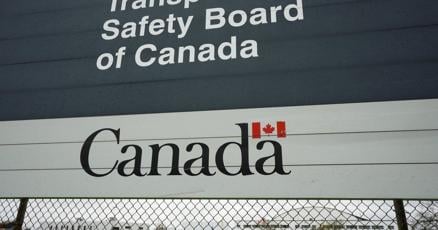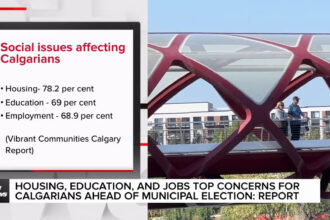Un incident troublant a secoué la communauté aéronautique de Whitehorse hier après-midi, lorsqu’un hélicoptère effectuant un exercice d’entraînement s’est écrasé avec deux personnes à bord, déclenchant une intervention d’urgence immédiate et soulevant des questions sur les protocoles de sécurité des formations de vol dans le Nord canadien.
L’incident s’est produit peu après 15h30, heure locale, lorsque l’appareil, identifié comme un hélicoptère Robinson R44, s’est abattu près de l’aéroport international Erik Nielsen de Whitehorse. Selon des témoins, l’hélicoptère semblait éprouver des difficultés lors d’une manœuvre d’entraînement de routine, comme l’ont confirmé plus tard les responsables de l’aéroport.
“Nous avons entendu un bruit inhabituel – comme si le moteur peinait – puis nous avons vu l’hélicoptère descendre rapidement,” a déclaré James Morrison, qui travaillait dans une installation voisine lorsque l’accident s’est produit. “Les véhicules d’urgence étaient sur les lieux en quelques minutes.”
Le Bureau de la sécurité des transports du Canada a déployé des enquêteurs pour examiner l’épave et déterminer ce qui a provoqué la défaillance de l’appareil. C’est le troisième incident d’hélicoptère au Yukon cette année, ce qui soulève des inquiétudes quant à l’influence possible des conditions extrêmes du Nord sur ces événements.
Les deux occupants de l’hélicoptère – un instructeur et un pilote en formation – ont été transportés à l’Hôpital général de Whitehorse. Bien que les autorités n’aient pas révélé leurs identités, la porte-parole de l’hôpital, Andrea Bremner, a confirmé que les deux personnes sont dans un état stable avec des blessures non mortelles.
“Heureusement, les évaluations initiales suggèrent que les deux individus se rétabliront complètement, bien qu’ils restent sous surveillance médicale,” a déclaré Bremner lors d’une brève conférence de presse.
L’hélicoptère était exploité par Northern Sky Aviation, une école de formation au pilotage qui dessert le Yukon depuis plus de quinze ans. L’entreprise a temporairement suspendu toutes ses activités de formation en attendant les conclusions de l’enquête.
“La sécurité est notre priorité absolue,” a déclaré Robert Williamson, directeur des opérations de Northern Sky Aviation. “Nous coopérons pleinement avec les enquêteurs et menons notre propre examen interne de tous les dossiers de maintenance des aéronefs et des procédures de formation.”
Le Robinson R44, largement utilisé à des fins de formation à travers le Canada, a généralement maintenu un bon bilan de sécurité, bien que les experts notent que les exercices de formation des pilotes comportent intrinsèquement des risques élevés, quel que soit le type d’aéronef.
Des responsables de Transports Canada sont arrivés à Whitehorse pour participer à l’enquête, se concentrant particulièrement sur les dossiers de maintenance et la possibilité que les conditions météorologiques – qui comprenaient des rafales de vent modérées et une couverture nuageuse éparse au moment de l’incident – aient pu être des facteurs contributifs.
“Nous examinons tout, des systèmes mécaniques aux facteurs environnementaux,” a expliqué Claudia Reynolds, enquêtrice du BST. “Nos conclusions préliminaires suggèrent qu’il ne s’agit pas simplement










